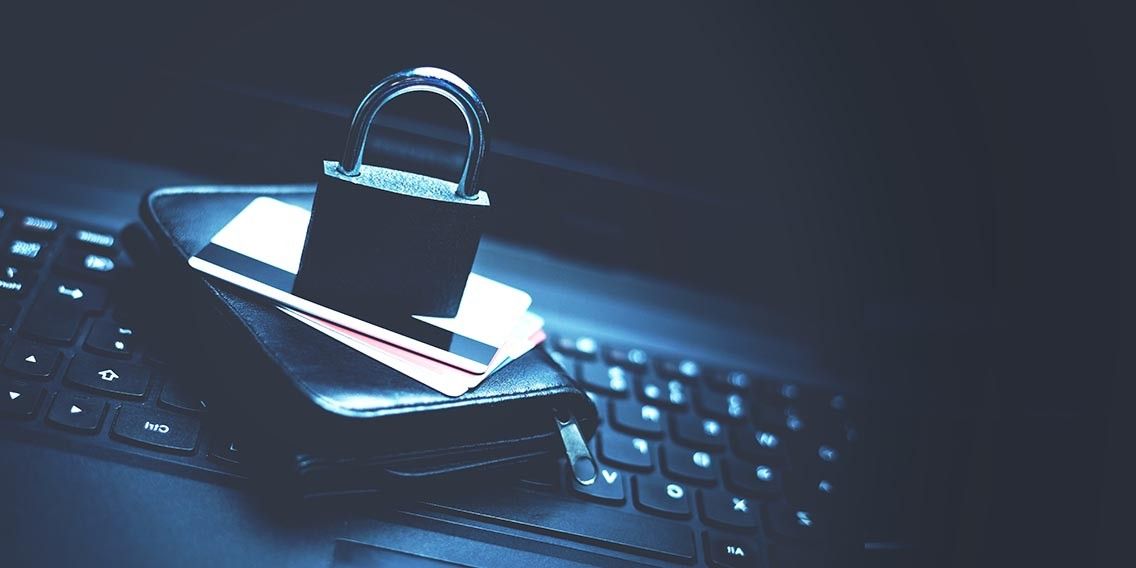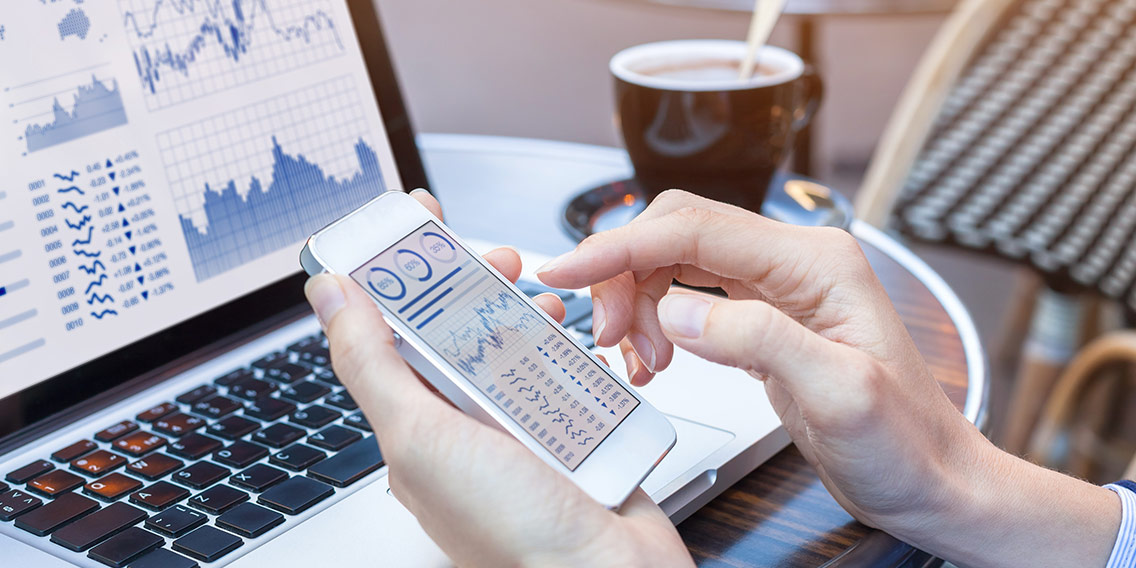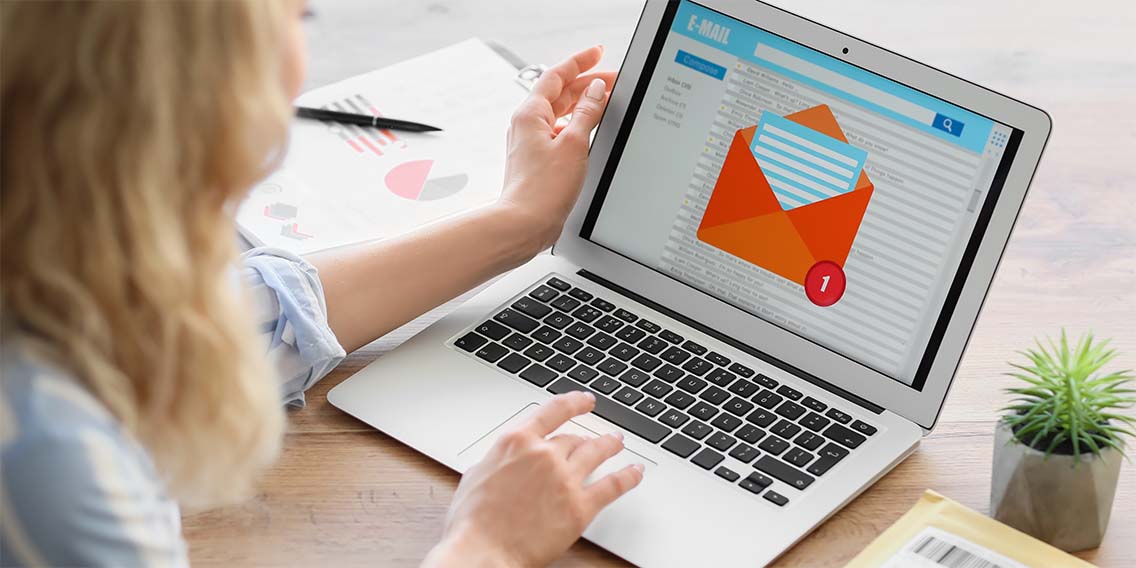SECURITY
10 Security Tips for Working Remotely
EXPECTED READ TIME: 6 MINUTES
Working environments have changed dramatically for most people since 2020. Today, 12.7% of full-time employees are fully remote, with another 28.2% working in a hybrid model.
Employees now find themselves increasingly on the front lines in the fight against digital security threats. The term "job security" takes on a deeper, more literal meaning when you're talking about the sensitive data on computer connected to your home Wi-Fi.
So, how can you make your remote workplace a safe and productive environment? Here are the best ways to fight cybercrime and a few things to remember when it comes to physical security.
Remote Work Cybersecurity Tips
When it comes to protecting yourself — and by extension, your employer — from cyber threats, there are no tangible boundaries or set hours of operation. It's a 24/7/365 endeavor.
"Working from home is no different than being in the office — the same rules apply," says Jeff Catalfamo, senior information security analyst for PenFed. "Cybersecurity is everyone's responsibility, whether at work or at home."
And while working from home or remotely might feel safer because you're in a familiar environment, physical security shouldn't fall to the wayside when you leave the office. Office safety protocols still apply to any kind of files or electronic equipment your company provides, including company smartphones, whether you’re on campus on away.
Office safety protocols still apply to any kind of files or electronic equipment your company provides.
Here are ten best practices for remote working that you can start to implement right now:
1. Use Secure Networks
Your home's wireless router is the primary entry point for cybercriminals. Secure your Wi-Fi network and all of your digital equipment by changing the factory-set default passwords and usernames. If you have multiple devices, use a unique password for each one.
Network security should also be a priority when working outside the walls of your home office. Since public Wi-Fi is notoriously unsecure, cybersecurity experts recommend that you avoid using it altogether. At the least, refrain from logging in to corporate databases, visiting vulnerable sites, or typing in personal or business account information from unprotected networks.
If you have multiple devices, use a unique password for each one.
2. Create Strong Passwords
It's not enough to simply create passwords for all your online accounts and digital devices — you need to make them strong. To make it harder for cybercriminals to guess their way into your systems, your passwords should:
- Contain at least eight characters
- Incorporate capital and lowercase letters, numbers, and special symbols (#!?)
- Avoid use of dictionary words, names, or ties to any of your personal information (like your pet's name)
- Be unique, yet easy for you to remember
If you struggle to create and keep track of your passwords, consider using a password manager. These programs allow you to generate and store all your passwords in a single location that's also protected, so you only have to remember one password.
Your passwords should be unique, yet easy for you to remember.
3. Enable Two-Factor Authentication
When it comes to home security, you trust a deadbolt or alarm system more than just a simple doorknob lock. The same principle applies to cybersecurity, which is why you should always enable two-factor authentication.
Two-factor authentication requires you to enter two types of verification — such as passwords, security tokens, and biometric identification (like a fingerprint) — to log in to online accounts, electronic devices, and computer networks. This extra layer of security reduces the chance that a cybercriminal will hack into your systems and download private information.
Next time a software update reminder pops up on your screen, don't ignore it.
4. Update Your Software
Next time a software update reminder pops up on your screen — including antivirus software — don't ignore it. Updates often patch security flaws, repair bugs, and add new features. Installing updates right away is one of the most effective ways to protect your privacy.
Better yet, configure your digital devices to automatically install updates. That way you'll never miss an opportunity to boost protection for yourself, your devices and applications, and your data.
5. Install a VPN
If you work with potentially sensitive information or need to access your employer's server remotely, set up a virtual private network (VPN) for your home office. In fact, your company may require it, whether you use software they provide or subscribe to a VPN service.
VPNs create a secure tunnel between your computer or device and the site or service you're connecting to. They also encrypt data that travels through the passageway, which prevents unauthorized individuals from being able to read or unscramble the information.
VPNs create a secure tunnel between your computer or device and the site or service you're connecting to.
6. Keep Things Clean
Many companies — particularly professional and financial firms — enforce clean desk and clean screen policies for employees' office workspaces. It's a good idea to follow the same procedures at home, regardless of the type of work you do.
Aside from eliminating clutter, clearing your desk at the end of each day reduces the chance that you'll misplace important items and information. Meanwhile, logging out each time you leave your computer and shutting it down every night prevents sensitive data from being exposed.
Shutting down your computer every night prevents sensitive data from being exposed.
7. Guard Your Gear
Try not to let your guard down when you venture off site to work at a coffee shop or similar venue. A quick trip to the restroom or the pick-up counter is more than enough time for someone to make off with your backpack, laptop, phone, and anything else left unattended.
Physical security is a full-time effort, whether you're at home or on the road. Keep work equipment with you at all times if you're out and about. Lock it in your office or store it in a secure cabinet when not in use at home.
Physical security is a full-time effort, whether you're at home or on the road.
8. Protect Confidential Files
In most cases, you shouldn't remove confidential files from your company's main office. If there's a legitimate business reason to take sensitive data home with you, be extremely careful.
Paper documents should be locked in file cabinets when not being referenced, and digital records should remain on password-protected devices. After you're done with the information, take them back to your main office or dispose of them properly. Avoid keeping work-related files at your house for extended periods of time.
Paper documents should be locked in file cabinets.
9. Separate Your Devices
Although it's convenient to scroll social media and do your online banking from the same laptop you use to create client spreadsheets, it isn't particularly safe. You could jeopardize critical business data if your machine lacks protection or becomes infected with malware. You may also be jeopardizing your own privacy.
If possible, use separate computers, phones, tablets, and other devices for personal and professional tasks. Ideally, your employer will issue equipment loaded with the same security software and safety controls as if you were working in the office.
If possible, use separate computers, phones, tablets, and other devices for personal and professional tasks.
10. Block Sight Lines
When you're working in a high-traffic airport or a public place like a library, pay attention to your sight lines. Anyone — including visual hackers — sitting around you (or walking up behind you) can spy what's on your computer screen.
The easiest way to prevent this is to sit in a secluded area, minimize your screen size, and position your laptop away from public lines of sight. For added protection, you can install a privacy filter to reduce screen peeking from a number of angles.
Sit in a secluded area, minimize your screen size, and position your laptop away from public lines of sight.
The Takeaway
Remote work has proven popular, with 65% of employees preferring fully-remote work and 32% preferring a hybrid model. But with new perks come new responsibilities. Securing your remote workspace requires a multi-pronged effort that goes beyond a good password — it's really about doing your part and adopting a set of new habits that will benefit both you and your employer.
Have More Questions About Security? PenFed Has Answers.
Learn more about protecting yourself from online theft and threats.




